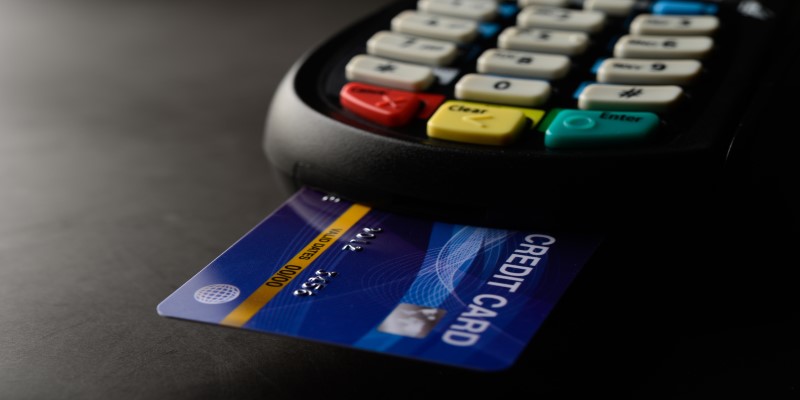Emergency loans are usually intended for fast money solutions in case of an emergency; they are a way to get some cash when one needs it. These loans are usually of short duration, and the borrower can obtain the cash within a short time, making them suitable for use in emergencies like hospital bills, car repairs, or house repairs. It is therefore important to grasp the features and uses of emergency loans in order to make the right financial decisions. Nevertheless, they provide fast funds, and like with every type of credit, there are certain conditions that are worth considering. This article will acquaint the reader with what emergency loans are, how they can be used, and how one can figure out whether to take them or not.

The purpose of emergency loans is to offer quick financing needed in an emergency situation. The main characteristics and advantages of such products make them helpful for a person who has to cope with some urgent costs.
Another major benefit of emergency loans is the time it takes to get the money so that you can handle the situation. Emergency loans, for instance, can be approved where time is of the essence, such as in a medical emergency or a house that needs repairs within hours or a few days at most. It is especially important to have such fast approval for expenses that cannot be postponed when an individual needs insurance or some other guarantee of financial security. Emergency loans, as a rule, have short application procedures and are delivered as quickly as possible, so that the recipient can solve his or her emergency immediately.
The amount borrowed and the length of time taken to repay the loan are also quite flexible, making emergency loans suitable for any need. It is normal for borrowers to select the amount of credit that suits their position, whether it is a few hundred dollars or more. Also, the repayment schedules may differ from one lender to the next to give borrowers the chance to choose the most appropriate plan for which they are willing and capable of paying. This flexibility makes the loan fit the needs of the borrower, and hence emergency loans are the best for anyone who is in need of a huge amount or a small amount, depending on the emergency.
Another advantage of emergency loans is that they do not require collateral to be provided to applicants to be approved for the loan. This is especially useful for people who are unable to bring any valuable securities or simply do not wish to lose their property in case of non-payment. Since the enforcement of the collateral requirement is removed in the case of emergency loans, people with small savings can access the credit. This feature also makes it possible to accelerate the approval process since there is no evaluation of the assets, among other benefits to the borrowers.
They are very flexible and can be taken for any purpose and in any emergency situation to meet that particular need.
Health complications are known to occur when least expected and can cause a lot of financial loss. Emergency loans can come in handy in such cases as they enable a person to get the money to cater for the bill, treatment, or prescriptions. Regardless of whether one is faced with an acute illness, an accident, or an unplanned surgery, being able to get some cash within the shortest time is helpful.
Transportation is a necessity in day-to-day life, and when a car or any other vehicle develops a mechanical problem, this affects work, home, and other activities. A loan can be taken to cater for emergency expenses such as the fixing of a car, which will enable one to use the car as soon as possible. Even if it is a minor or major overhaul of the engine, having the cash at hand to cover the bill is very important, especially when other means of transport are likely to be very expensive. This early access to funds keeps daily life going as much as possible and reduces the effect of unexpected repairs.
Repairs like a bad furnace, a leaky roof, or a burst pipe in the house can turn into an emergency that needs to be fixed immediately. Getting emergency loans helps to quickly find the money to pay for these kinds of repairs, so as to avoid further damage to the property and to ensure that people are living safely. Thus, with an emergency loan, homeowners can fix such problems as soon as possible and prevent the deterioration of the situation and the necessity of spending even more money on repairs in the future. It also helps homeowners attend to any other emergency that may require financing without straining or seeking help from friends and relatives.

Emergency loans are effective financial instruments, but they should be employed only in an emergency and with a lot of thought. It is important to understand when to take an emergency loan so as to avoid taking one when you actually do not need it and make sure that the loan is really an emergency loan.
The first criterion that has to be assessed before a person decides to take out an emergency loan is the level of emergency. Ask yourself if the expense is urgent and necessary, for example, a medical condition or the repair of a car or house that cannot wait. If the need is urgent and cannot wait, then taking out an emergency loan may be justified. But if the expense is manageable and can be deferred or dealt with in another way, then it is better to look for other options. The evaluation of the urgency also makes it possible to establish whether the loan is appropriate and whether financial pressure is really needed.
As much as one may consider taking an emergency loan, it is wise to look for other solutions that would not be so expensive or dangerous. These alternatives could include early withdrawal of money from a savings account, discussing with creditors to come up with an agreed-upon installment payment plan, or approaching friends and relatives for any form of support. Also, some credit unions or community organisations may provide low-interest loans or grants for certain requirements. Considering these options can help steer clear of high interest rates as well as charges commonly related to emergency loans. In this way, you consider all the possible options and can decide which one would be best for you and, at the same time, which one would be the most cost-effective in the future.
An emergency loan is perfect for some situations but must be applied for carefully. Therefore, based on the urgency of your need and if there is any other option available, one is in a position to make the right decision about whether to take an emergency loan or not. It is therefore important to understand the terms and ramifications of the loan so as to avoid incurring unnecessary debt. As such, in case you need to take emergency loans, it is possible to make the right choices and ensure that these loans will be useful for you and not the opposite.

By Noa Ensign/Sep 20, 2024

By Juliana Daniel/Sep 26, 2024

By Celia Shatzman/Sep 21, 2024

By Elena Davis/Sep 25, 2024

By Kristina Cappetta/Sep 20, 2024

By Pamela Andrew/Sep 25, 2024

By Aldrich Acheson/Sep 25, 2024

By Celia Shatzman/Sep 20, 2024

By Georgia Vincent/Sep 26, 2024

By Sean William/Sep 26, 2024

By Madison Evans/Sep 21, 2024

By Gabrielle Bennett/Sep 26, 2024